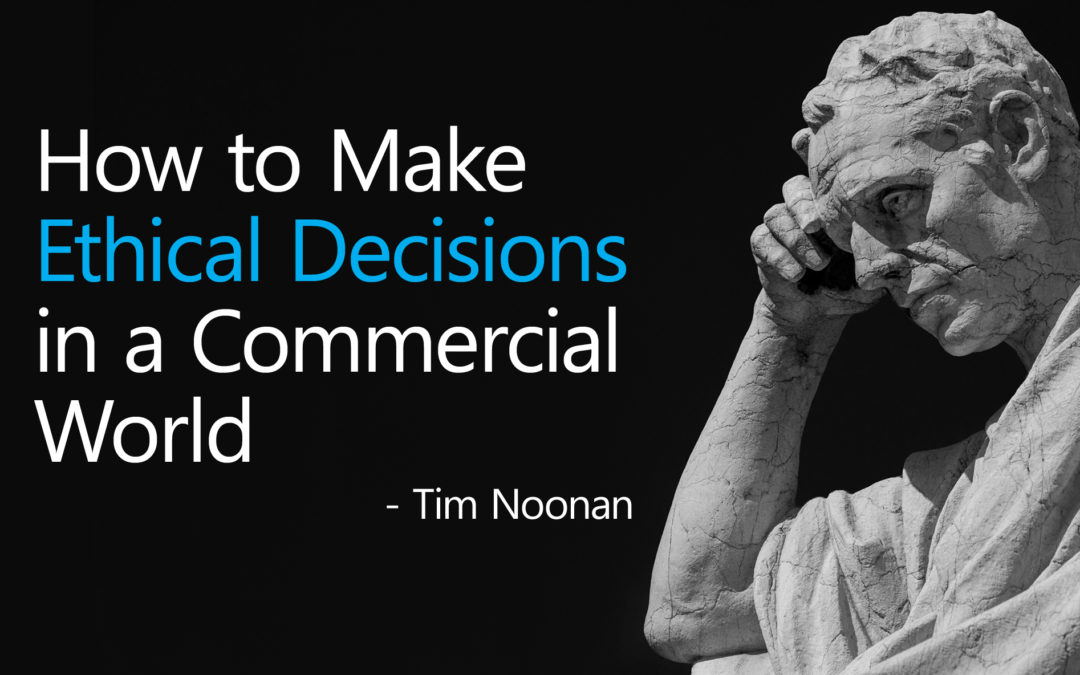Every business decision has consequences, and with so many factors to consider – and many unknowns we can’t consider – those consequences can be serious. For the executive whose decisions may impact large numbers of employees, vendors and consumers, it can feel like a high-wire ride on a unicycle.
Now, toss ethics into the decision-making process, and keeping balance on that high-wire ride becomes even more challenging.
But making ethical decisions in a commercial world doesn’t have to be such a burden.
Simply put, ethics is a moral philosophy of right and wrong. Business ethics, as Melissa Horton explains it in Investopedia, is “the system of moral and ethical beliefs that guides the values, behaviors and decisions of a business organization and the individuals within that organization.”
These “beliefs” are rooted in integrity, honesty, fairness, and protecting the public welfare. In some areas…laws, regulations and codes have been enacted to protect the environment, prohibit discrimination, and maintain health and safety standards.
Apart from those obvious ethical considerations, there are many more vague issues that we all must navigate daily on a case-by-case basis. Here are some steps you can take to help you make the best, most moral decision possible in difficult situations.
Research and Discuss
The first, most crucial step in making any decision is to gather as many facts as possible. Uninformed decisions produce unintended consequences, which can be dire. So gather information about the particulars of the situation through research and in discussion with key stakeholders, such as your employees.
Compare Options
Research shows that people are able to make more rational decisions when they are able to compare two or more options. Line up as many alternative choices as you can and evaluate them together. This lets you go through a process of elimination and thin out the less promising selections.
Look to the Past
While researching past examples, you may find the precise issue had been addressed before, perhaps in your own company. While it’s prudent to examine the consequences and learn from what happened, be aware that laws, public preference, and market behavior may have changed in the interim. Whether it went well or poorly, you can still learn from it. Examine the process that was used in the light of current realities, then correct any mistakes that might have been made and move forward.
Making ethical decisions is a difficult enough proposition in everyday life. However, when it involves the health of a company that provides income to many families, and products or services for many people, be as careful as possible within the amount of time you have. Consider all the angles available to you so you can be confident that, whatever happens, you made the most ethical decision possible.
